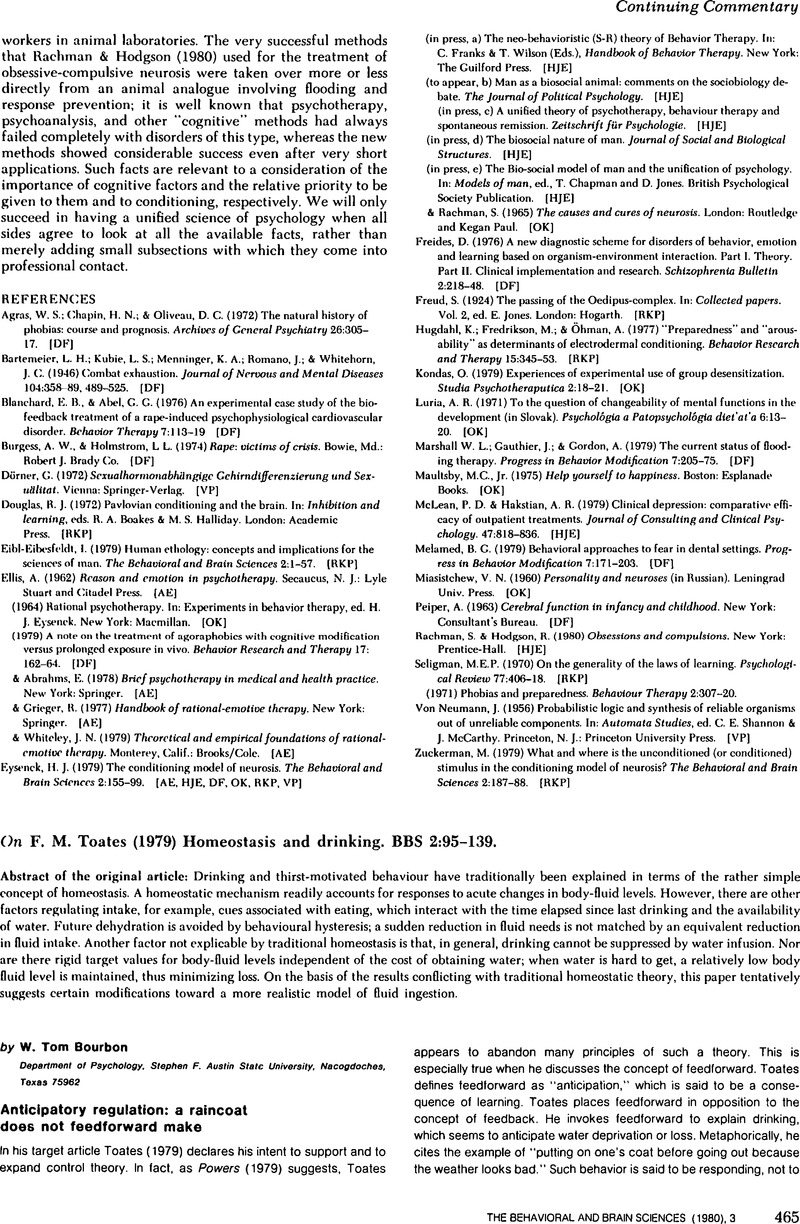Crossref Citations
This article has been cited by the following publications. This list is generated based on data provided by Crossref.
Walsh, L. L.
1982.
Regulation of water intake: Importance of genotype.
Behavioral and Brain Sciences,
Vol. 5,
Issue. 2,
p.
274.
Toates, Frederick M.
1982.
Hysteresis and habit.
Behavioral and Brain Sciences,
Vol. 5,
Issue. 2,
p.
275.


